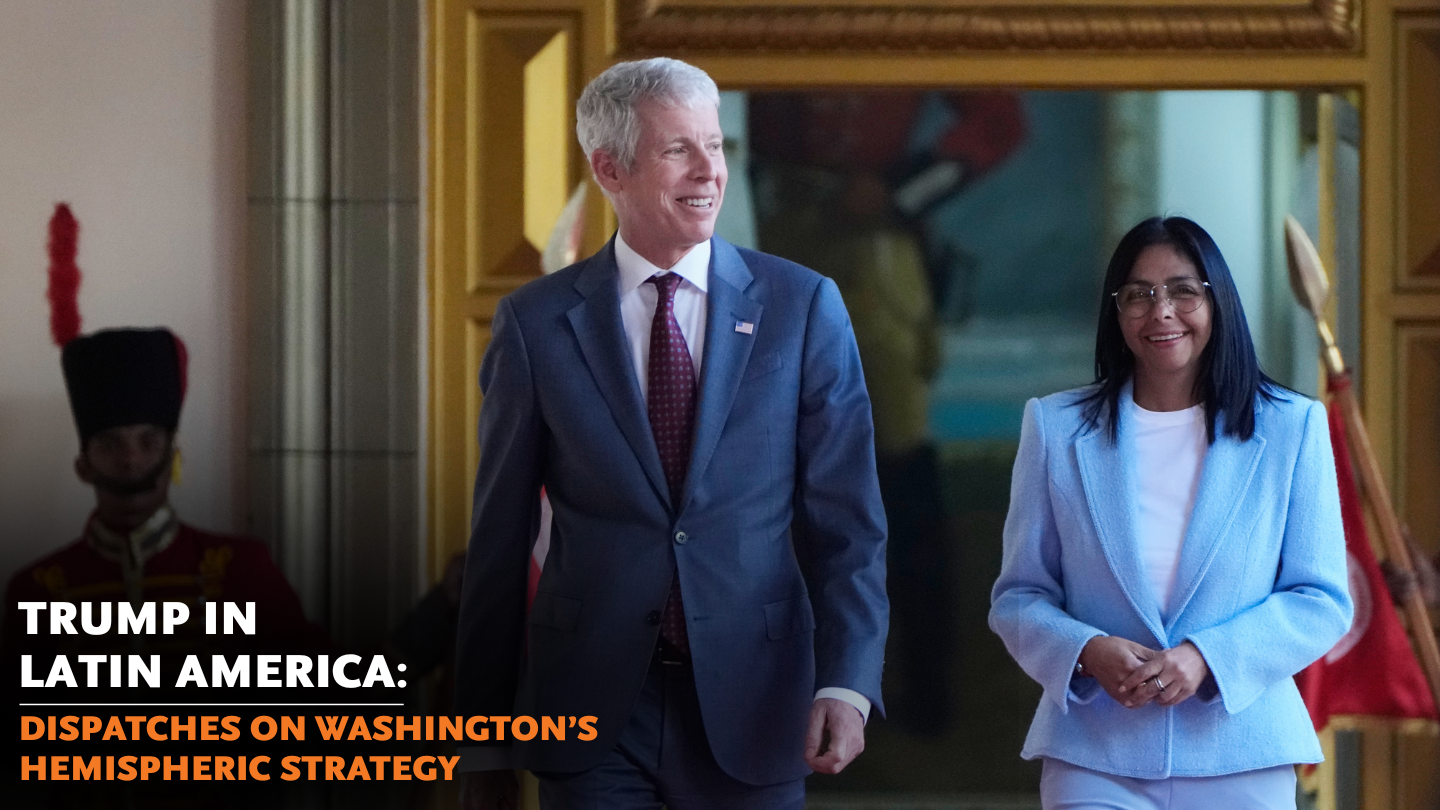Pushing for a Trade Deal
Pushing for a Trade Deal
The White House has stepped up efforts to gain approval for the U.S.-Colombia trade deal. But the Bush administration could face a battle in Congress.
In recent days, the White House has stepped up efforts to gain approval for the U.S.-Colombia trade deal after U.S. Congress returns from Easter recess. Speaking at the U.S. Hispanic Chamber of Commerce on March 12, President George W. Bush called passage of the pact “urgent” and said it would advance Washington’s “national security and economic interests.” The push for the free trade deal comes following a tense standoff between Colombia and its neighbors Venezuela and Ecuador. During his speech, Bush urged Congress to approve the deal to counteract the influence of Venezuelan President Hugo Chávez in Latin America.
The U.S.-Colombia Trade Promotion Agreement (TPA) was negotiated in 2006 in advance of the expiration of the Bush administration’s “fast track” authority. As a result, Congress will have to consider the deal within 90 session days and without amendment.
But the deal faces a battle in Democratic-controlled Congress. House Speaker Nancy Pelosi responded to Bush’s calls for TPA approval by cautioning the White House to “follow the established protocol of Congressional consultation” before submitting the agreement. The push for the deal also comes at a time when Democratic candidates campaigning in the U.S. presidential election have taken an increasingly protectionist tone. Prior to the Ohio state primary, Senators Barack Obama and Hillary Clinton each suggested renegotiating the North American Free Trade Agreement.
Democratic in Congress have called for greater progress from Bogota in reducing the murders of trade unionists before passage of the U.S.-Colombia deal. However, while testifying to the U.S. Senate Finance Committee last week, U.S. Trade Susan Schwab argued that the “time is now” (PDF) for the TPA. She noted that Colombia’s homicide rate has dropped by more than 40 percent since 2002 and that murders of unionists have dropped more than twice as quickly. Writing for Politico, the U.S. Chamber of Commerce’s Thomas Donahue says the steep decrease in crime provides an example of progress and a “moral case for approval” of the deal.
A majority of Colombian goods enter the United States duty-free through the Andean Trade Preferences Act, and two-way trade between the United States and Colombia reached roughly $18 billion in 2007. According to the Latin America Trade Coalition, Colombia serves as the largest market (PDF) for U.S. agricultural exports in South America and nearly 8,000 U.S. companies export goods to Colombia. A report by the U.S. International Trade Commission estimates that the TPA would boost the U.S. GDP by $2.5 billion while raising Colombia’s exports to the United States by $487 billion.
COA Vice President Eric Farnsworth writes in a new article for Poder magazine that “a path forward must be found” for the trade deal. He suggests approving the deal this year with entry into force delayed until the next U.S. president takes office. Read a recent AS/COA Congressional Update takes a look at the status of the U.S.-Colombia trade agreement.








